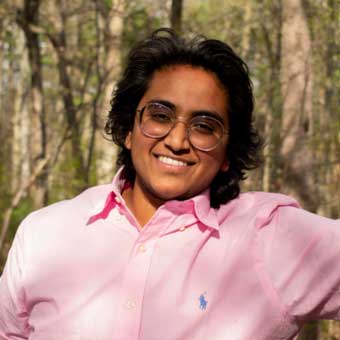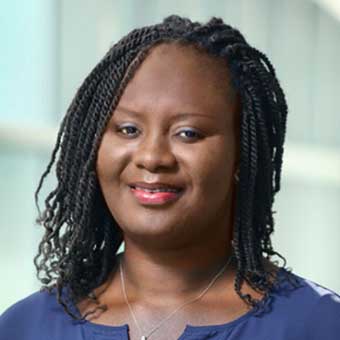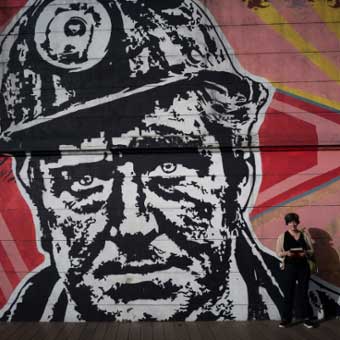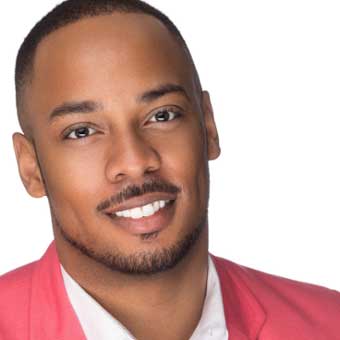Past Faculty Grants
The Mandel Center for the Humanities supports innovative faculty scholarship, research and writing through a number of grant opportunities.
These include our new Public Humanities Grants which support Brandeis faculty working on experimental and/or publicly engaged projects in the humanities, the arts and the humanistic social sciences. These include projects that have audiences beyond the academy, projects in the experimental or digital humanities, applied humanities work, and/or collaborative projects that create and sustain mutually beneficial partnerships with community organizations, museums, libraries or other cultural spaces or media. Read more about our Public Humanities projects.
2024-25
For readers of the Russian novel comparisons between Dostoevsky and Tolstoy inevitably crop up. Critical debate and interest have focused on their unforgettable primary characters, on plot, on narrative voice, on their contribution to notions of historicity and time, to philosophy, and, finally, t “the big questions” such as “How shall I live?”, “How shall I die?”, “Does God exist?” “Do people really change?” My ongoing project Tolstoy, Dostoevsky and the Small of This World grapples with these issues from a different angle, one that is tangentially relevant to current disputes about the value of a liberal education. Like Dostoevsky’s own “schoolboys” in The Idiot and The Brothers Karamazov, students plunge into confrontations with “the eternal questions” through their immersion in the ocean of fiction. When I teach War and Peace, they complain that the work is too short. What does this complaint really mean? With such questions in mind, I have approached Dostoevsky and Tolstoy through their representations of “the small of this world”—for example, through their depiction and understanding of animals, children, and minor characters. For these two writers, “the small of this world,” loom large; a sustained consideration of them may alter our understanding of their author’s giant canvases.
Universities have a rich history of maintaining archaeological study collections. At Brandeis, we are fortunate enough to be the custodians of a diverse collection of antiquities, maintained by the Department of Classical and Early Mediterranean Studies. The CLARC (Classical & Early Mediterranean Studies Artifact Research Collection) provides an opportunity for undergraduates and graduates to do hands-on work with artifacts, gain experience in museum curation and conservation, as well as develop skill sets around digital imaging. The Virtual CLARC project involves the digitization of the CLARC collection of artifacts to create an interactive museum virtual environment. “Virtual CLARC (vCLARC)” will provide a public forum to share CLARC with the Brandeis community of students and faculty and extend its impact to reach the public. Artifacts will be placed in a virtual museum for ‘guests’ to walk- through and explore the collection. The interactive elements of vCLARC will be centered around providing student learning through artifact analysis, the acquisition and development of digital imaging skills by students, the curation of artifacts in virtual exhibits, and how to present these items to the broader community of scholars and public visiting vCLARC.
Democracy Starts at the Poles investigates the conditions of possibility for Black and women of color’s erotic freedom. Specifically, it historicizes and probes the formation of pole dance as a paradigmatic signifier of racialized gendered sexual subjection and, as pole artists would have it, a primary site for women’s erotic empowerment and the production of alternative epistemologies of sensual and somatic freedoms. Democracy Starts at the Poles homes in on women of color pole practitioners, and the ways in which they navigate the political economy of race that both structures and shapes the erotic capital—money, embodied and otherwise resources, clients, artistic opportunities, and so on—that pole dancers might mobilize to both negotiate hegemonic narratives that stigmatize pole dance and challenge social practices within the industry that attempt to delimit the empowerment pole proclaims to afford to and for everybody.
Lu Xun (1881-1936) was the writer who arguably had the greatest influence on how modern China understands itself. In his often-scathing critiques of Chinese traditions and habits, Lu Xun prodded his readers to seek liberating change. This exhortation lives on in Lu Xun’s writings, sometimes serving rulers and sometimes challenging them. Calling him “modern China’s saint,” Mao Zedong nonetheless joked that if Lu Xun had lived to see the victory of Communism in China, he might have “either gone silent or gone to prison.” Mao’s dilemma lives on. Supporters of China’s government tend to frame Lu Xun as a prophet whose vision has been fulfilled, while critics often cite him as a voice that still calls for change. I plan to use my award to study modern interpretations of Lu Xun’s writings: exhibitions at the Lu Xun Museum in Shanghai, official academic articles, but also online comments and the occasional public protest. I hope to understand better which aspects of Lu Xun’s legacy serve which visions of China today.
The project is to create an interactive website that delves into the complex histories of East Asian artists in Europe and the United States. Spanning a century from the 1880s, when the first wave of their arrival began, to the 1980s, our website will serve as a rich resource for uncovering their remarkable stories. Throughout this period, many of these artists ventured to Western countries in pursuit of education and new opportunities. However, their stories and contributions are often obscured by national histories, ethnocentrism, and hagiographic biographies. Our project aims to address this problem by providing a more expansive narrative of East Asian diasporic experiences, exploring the dynamic effects of migration and the diverse range of supporting institutions that influenced their developments. Our research goes beyond famous figures and encompasses overlooked and lesser-known artists as well. By exploring their collective story, we gain valuable insights into the realities of the Euro-American art landscape.
2023-2024
Department of Anthropology, Public Humanities/Community Engagement
"Backside"
"Backside" is a feature documentary that explores the daily life and expertise of the underrecognized migrant workers behind the Kentucky Derby. Following a racing season from beginning to end, this observational film exalts immigrant labor and highlights a prevalent web of class, labor and wealth in the United States.
Developed through over two years of ethnographic research, "Backside" is anchored in the life of three backside workers: Cristóbal, a Mexican groom; Harold, one of the last African American grooms; and Bertila, who hails from Guatemala and is one of the few women grooms. Stemming from a history of slave labor, grooms were primarily African American until the '80s when the workforce shifted to Latinx migrants.
Grooms care for some of the most expensive horses in the world. While owners cover the many costs for the horses' upkeep, with trainers and jockeys who push the animals to run faster, it's the grooms who ultimately care for them. With years of experience and often deep relationships built with the animals, the grooms observe variations in their horse's state of mind and are the first to find physical injuries, while being careful to not get hurt in the process.
Grooms, in particular, are injured regularly by being bitten, kicked or stepped on by the 1,000-pound animals. While working as trainer, assistant trainer, exercise rider or jockey are the most desirable jobs, their work rests on the labor of the workers and horses; without either, there would be no Kentucky Derby. Grooming requires as much skill as these desirable jobs, yet is the most demanding and least paid position. These roles create a clear class, race and linguistic hierarchy that leaves grooms on the bottom rung of the social scale.
Along with a supporting cast of characters: hotwalkers, exercise riders, jockeys, trainers and assistant trainers, the audience is brought into the lives of those who have sustained the Kentucky Derby — the most famous horse race in the world and an emblem of the American South. By exploring the barns of the Kentucky Derby, an event representative of affluent white southern culture, "Backside" patiently reveals the intertwined nature between racialized labor, immigration and domestic animals.
Department of Anthropology, Public Humanities/Community Engagement
"Gamble Heritage Monitoring and Resilience: Developing Simplified Multimodal Photogrammetry Monitoring Techniques as A Novel Tool for Community and Heritage Asset Resilience Building Against Climate Change"
Historical structures and archaeological sites are fragile and often unstable resources increasingly subjected to an unremitting spectrum of environmental hazards. In the wake of recent hurricanes, floods and wildfires, newly applied resilience frameworks have provided structure to studies of cultural heritage vulnerability and heritage resilience. However, recent work demonstrates that in order to develop heritage resilience, and before regular maintenance and conservation can occur (if that is indeed at all possible given funding constraints), it is increasingly vital that heritage professionals develop an augmented understanding of the effects environmental impacts and events have on archaeological resources over time.
In response, the Gamble Heritage Monitoring and Resilience Project has focused on building engaged approaches incorporating innovative and sustainable multi-temporal technologies for cultural heritage monitoring using 3D-photogrammetry operated by community collaborators to build site feature models demonstrating the contemporaneous state of the heritage structure. The definitive goal of this project is to observe heritage degradation, but also to create and sustain mutually beneficial partnerships with local community volunteers and organizations implementing supportive community-engaged inspection strategies designed to increase heritage asset resilience and aid community resilience against climate change.
Department of English, Public Humanities/Community Engagement
"Urban Pastoral"
What of the pastoral mode can be salvaged for imagining newly creative tactics of slowed time, intensive space and degrowth/wellness economics?
In this project, I aim to transform my ongoing research and teaching on the literary and performative mode of pastoral into a community-engaged, arts-and creativity-centered practice promoting inclusion and belonging, welcoming migrant communities displaced by the climate emergency, and rebuilding relations to built and natural environments as an important strategy for mitigating climate emissions, by imagining together forms of sociality committed to degrowth. (In a degrowth or wellness economy, community value is measured, not in traditional terms of economic development, but in terms of wellness, with an emphasis on reducing consumption and waste, fostering circularity and relational goods, and promoting environmental justice.)
The project would be based in the city of Somerville, where I have lived for over 20 years and which states its commitments to community-engaged, progressive values and its status as a sanctuary city. Somerville thereby can provide a laboratory for developing tools to be offered to other communities.
I seek funding for an exploratory phase of what I hope will be a long-term process of rebuilding relational goods and ecosystems in the city of Somerville. Funding would support working with community members and organizations to imagine a structure for facilitating the creation of new, place-based knowledge through both analysis and creativity.
"Ottoman Diasporas in New England (ODNE)"
From the 1870s to the 1920s, millions of people worldwide moved as economic migrants and refugees from war and violence. Tens of thousands came from the Ottoman Empire and ex-Ottoman lands to "America,” with its promises of security, economic riches and religious freedom. Newcomers included Armenians, Greeks, Jews, Lebanese, Levantines, Syrians, Turks and others. Many of these former Ottoman subjects originally arrived through the port of Boston and spread out to form a diverse Ottoman diasporic population across the region.
While individual communities have been studied, little attention has been given to the connections among this immigrant demographic through their shared experiences as former Ottoman subjects now residing in the U.S. In part, this is due to the circumstances of their departures, which ranged from violent expulsion to well-organized migration. The over-arching goal of ODNE is to create connections between Ottoman studies, a vast field seemingly remote in time and space, and the students, scholars and local communities of New England.
In its first stage during the coming year, ODNE focuses on: source and scholarship discovery and cataloging; community identification, mapping and connections; student engagement through a History Lab course in which students join in building the project; and a summary workshop of research and cultural presentations by and for the scholar, student and community stakeholders in the project.
2022-2023

“Incorporating Transgender: Race and Resources in the Fight for Trans Justice"
The book maps how transgender and gender nonconforming (TGNC) communities of color and their allies identify and garner resources from nonprofit and philanthropic organizations. Amidst ongoing calls from academics and activists to abandon or abolish state institutions, the book reveals how TGNC communities of color are navigating these flawed institutions to better sustain their lives.

“Women Writing/ Écrire au féminin” in collaboration with Amina Seck, author, screenwriter, and director of Cultur’Elles, an organization that promotes women’s rights through the arts. The project supports young Senegalese women writers by creating an intergenerational network to train and mentor them, in addition to a hybrid writing workshop that includes sessions on cultural entrepreneurship and digital publishing. It will culminate in a book fair that brings together authors, readers, publishers, literary scholars, librarians and other important figures in the literary scene, as well as the publication of the short stories stemming from the workshop.

A collaborative project with the Bogotá-based non-profit organization OjoRojo Fábrica Visual to facilitate and document dialogue around the War of Villarrica (1954-1957) in rural areas of Colombia most affected by these events. While this war has largely been erased from the collective memory, the objective of this project is to build on and fortify efforts in Villarrica to inform the Colombian public about this censored history. The planned exhibition is designed as a “wall newspaper” that functions both as a large-format newspaper and can unfold and attach to the wall easily, creating a versatile and inexpensive exhibit that works in all sorts of public spaces, including schools, community centers and libraries. The project will involve organizing informal small-group discussions about the exhibition and the war in Villarrica and to document responses to them. These discussions will amplify the effect of the exhibitions and will aid OjoRojo in planning future events.

“Reclaiming Time: Race, Temporality and Black Expressive Culture”
The book critically examines an array of artistic works by Black artists that reflect on and reckon with the interplay of Blackness and time. The book proposes that for many Black artists, particularly those who came of age in the aftermath of the freedom struggles of the 1960s and 1970s, a deliberate and often ludic engagement with matters of time and temporality has served as a key means by which to interrogate and explore the conditions and complexities of Black life.
2021-2022
Anthropology
"Moral Fibers: Transforming Peruvian Artisanal Textiles into Ethical Fashion"
AAAS, Education and Sociology
"Revisiting Small Axe and the Cultural Politics of Education in Black Britain"
2020-2021
History, WGS, and AAPIS
“The First Amerasians: Mixed Race Koreans from Camptowns to America”
2019-2020
Anthropology
“The Day I Die: Assisted Dying in the Age of Medicine”
Sociology
“Half of a Hundred: Autobiographical Texts on Sex Work and Aging in Contemporary India”
2018-2019
Classical Studies
“The Many-Minded Man: The Odyssey, Psychology and the Therapy of Epic”
Romance Studies
“A ‘Protestant Air’ – André Gide, Jean-Paul Sartre, Roland Barthes, & The Religion of Literary Modernism”
NEJS
“The Trials of Stella Goldschlag: Nazi Victim, Holocaust Survivor, and War Criminal”
History
“Alien Invasions and Revolutionary Contagion: The Aliens Acts, the 1790s, and the Changing Contours of Citizenship”
AAAS
“Talk of Freedom: An Oral History of Cuban Participation in African Liberation Struggles”
2017-2018
Music
“Music, Sound and Text”
2016-2017
Romance Studies
“Reading Screenplays”
2015-2016
AAAS
“West African Dance and the Politics of Diaspora”
2014-2015
East Asian Studies
“Marx Enters the Temple of Confucius: A Chinese Translation between Antiquity and Revolution”
History
“The Anarchist’s Advocate: War, Terror, and the Origins of America’s Surveillance State”
2013-2014
Anthropology
“Indigenous Cultures, Past and Present: Community Engaged Archaeology in Chiapas, Mexico”